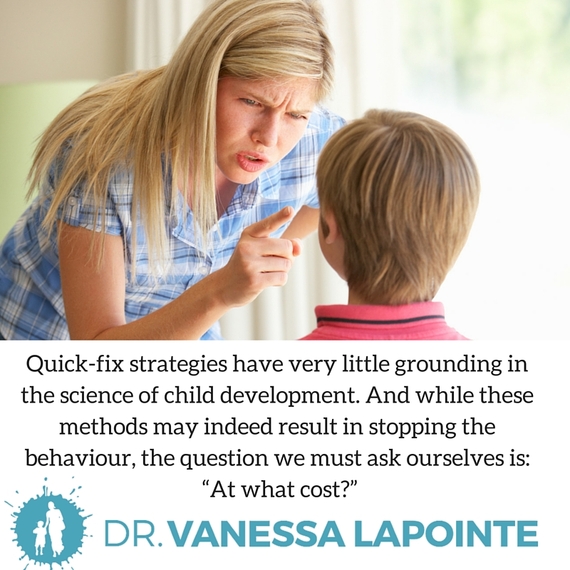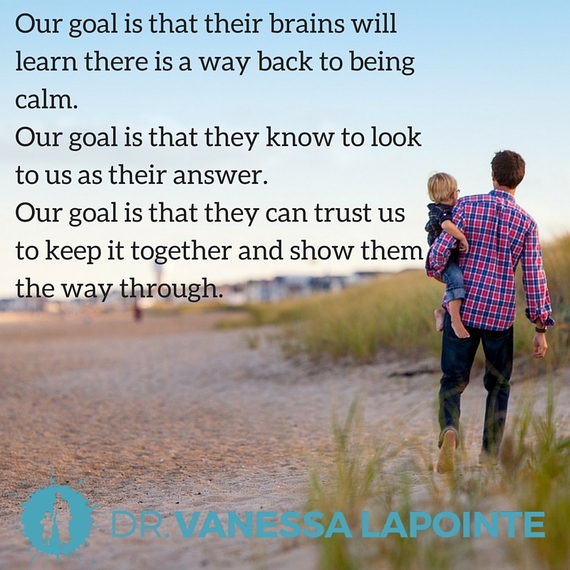
It can be seen at any long grocery store line-up: the older brother starts pestering the younger sister who is asking the parent for the 27th time to please buy them that sugar-loaded treat. The parent is becoming increasingly exasperated.
The other people in the line-up are starting to stare.
And then it happens...the yelly-shouty-grocery-store-parent moment. It often goes something like, "ENOUGH!!! I have told you 8 times to keep your hands off your sister. And as for you, the answer is NO!! There will be no treat!!!"
One child is then banished to the other side of the cart. One - or both - start crying.
And while the fighting and whining have stopped, nobody is left feeling very good about any of it.
Discipline is a topic that receives a lot of attention. The popular discipline "methods" today are all focused on making behaviour go away so that we can get on with our lives. They are generally quick-fix strategies that have very little grounding in the science of child development. And while these methods may indeed result in stopping the behaviour, the question we must ask ourselves is, "At what cost?"
What are we willing to put on the line for that moment of peace in the grocery store?
Contemporary science, including neuroimaging and neurochemistry, have confirmed beyond any doubt that once a child's physical needs have been addressed, the most important influence on child development is that the child feels they can count on their parent to take care of them emotionally. As part of this, the universal fear of all children is that their parent will abandon them - physically or emotionally.
What does this tell us about how we should be disciplining our children?
Let's go back to the grocery store and reconsider what our real goal is. Our goal is perhaps not the obvious one of having the children settle down. Rather, our goal is to have our children feel our understanding as we guide them to a place of being settled.
Our goal is that their brains will learn there is a way back to being calm.
Our goal is that they know to look to us as their answer.
Our goal is that they can trust us to keep it together and show them the way through.
With all of this in mind, the costs of having our children feel "abandonment," either through our anger at them or through actually sending them away from us to calm down, become all too apparent.
So the next time you find yourself on the verge of a yelly-shouty-grocery-store-parent moment, remember what is important. Be reminded of the impressionable brains and souls you are helping to grow. Find your way to firm, but kind, responses that define clear boundaries in an empathetic way.
"It looks to me like you are having a hard time keeping your hands to yourself right now. Sometimes that happens but it needs to stop. I can help you with that. Come stand by me and let's see if we can count how many people are in line with us."
Or, "I know you really want this treat. It is hard when I say no. I know you have some mad about that right now. That's ok. I understand."
And yes, the tears may come, the anger may erupt, and it may all feel like so much more work. But, when you consider what you have gifted your children in terms of their chance to truly grow up with brains and souls that function in the best possible way, it becomes extraordinarily manageable.

